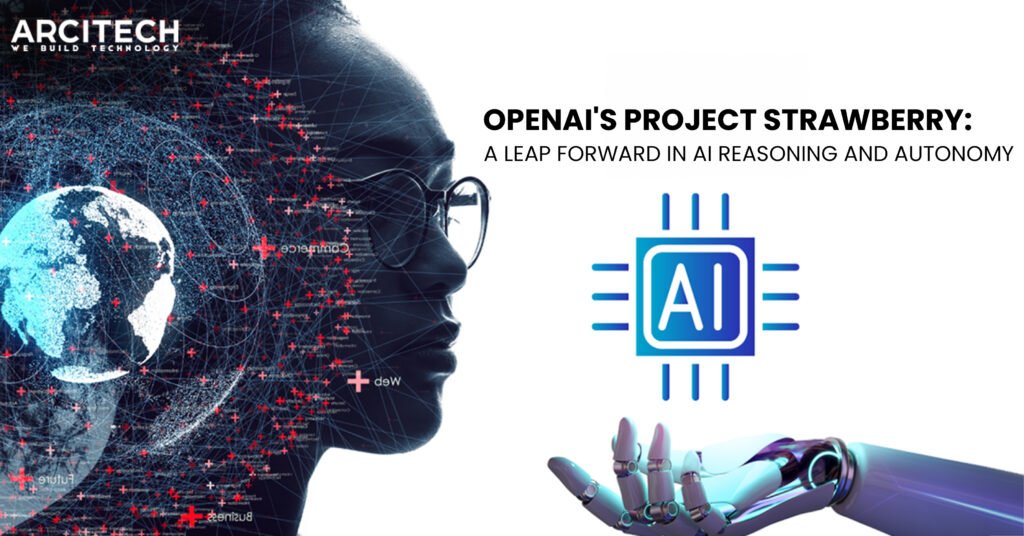OpenAI, the creator of ChatGPT, is reportedly working on a groundbreaking project code-named “Strawberry” that aims to revolutionize artificial intelligence (AI) by enhancing its reasoning capabilities. This innovative approach focuses on enabling AI models to plan ahead, navigate the internet autonomously, and perform deep research, marking a significant advancement in AI technology.
The Vision Behind Strawberry
The project involves a specialized method of processing AI models after they have been pre-trained on large datasets. This novel approach is designed to elevate AI’s ability to handle complex, long-term tasks that require advanced planning and execution. By leveraging this method, OpenAI hopes to push the boundaries of what AI can achieve, from conducting in-depth research to autonomously navigating the web.
How Strawberry Works
The core idea behind Strawberry is to enhance AI models’ reasoning capabilities through a unique post-training process. This involves several key steps:
- Pre-Training on Large Datasets: Initially, the AI models are pre-trained on extensive datasets to provide a broad base of knowledge.
- Post-Training Adaptation: The models undergo a specialized post-training phase where they are fine-tuned to improve performance in specific areas. This involves techniques like human feedback and iterative self-improvement, similar to methods like Stanford’s “Self-Taught Reasoner” (STaR).
- Deep Research Datasets: OpenAI is creating and training the models using a “deep-research” dataset, which is tailored to enable the AI to perform complex, long-horizon tasks (LHT). These tasks require the AI to plan and execute a series of actions over an extended period.
Real-World Applications
One of the key goals of Strawberry is to enable AI models to perform autonomous research by browsing the web and acting based on their findings. This capability could transform how AI models assist in various fields, from scientific research to software development. The AI could autonomously gather information, analyze data, and even perform tasks typically handled by human researchers or engineers.
For example, an AI model powered by Strawberry could:
- Navigate the Internet: Use its “memory” of previously gathered information to navigate websites and gather new data.
- Perform Complex Tasks: Execute multi-step tasks such as searching for information, compiling reports, and making recommendations based on its findings.
- Enhance Software Development: Assist in coding and debugging by autonomously identifying issues and suggesting solutions.
Current Progress and Challenges
The details of Strawberry are tightly guarded within OpenAI, and the exact timeline for public release remains unclear. However, internal documents reviewed by Reuters and interviews with sources familiar with the project indicate significant progress. Earlier this year, OpenAI demonstrated a research project with new human-like reasoning skills, though it is not confirmed whether this was Strawberry.
Despite the promising advancements, challenges remain. The system currently takes 10 to 30 seconds to process each instruction, which is too slow for real-world applications. Additionally, most testing has been conducted in controlled environments, leaving questions about performance in unpredictable, real-world scenarios.
The Future of AI Reasoning
Improving AI’s reasoning capabilities is seen as a critical step towards achieving human or super-human-level intelligence. Reasoning enables AI to plan ahead, understand complex relationships, and solve challenging multi-step problems reliably. Researchers agree that this is key to unlocking AI’s full potential, from making major scientific discoveries to developing sophisticated software applications.
OpenAI CEO Sam Altman has emphasized that progress in AI reasoning is crucial for the future of the technology. Other tech giants like Google, Meta, and Microsoft are also exploring various techniques to enhance AI reasoning, reflecting the industry’s collective effort to advance this field.
Conclusion
Project Strawberry represents a significant leap forward in AI technology, aiming to enhance AI models’ reasoning and autonomous capabilities. By focusing on post-training adaptation and leveraging deep-research datasets, OpenAI is paving the way for AI to perform complex, long-term tasks with greater accuracy and efficiency.
As OpenAI continues to refine and develop Strawberry, the potential applications for this technology are vast and varied. From autonomous web research to advanced software development, the future of AI reasoning looks promising. Stay tuned to Arcitech.ai for more updates on this exciting development and other cutting-edge AI innovations.
For more information on how cutting-edge AI solutions can transform your business, visit Arcitech.ai and explore our comprehensive suite of innovative services designed to drive your success. Discover more at Arcitech.ai

